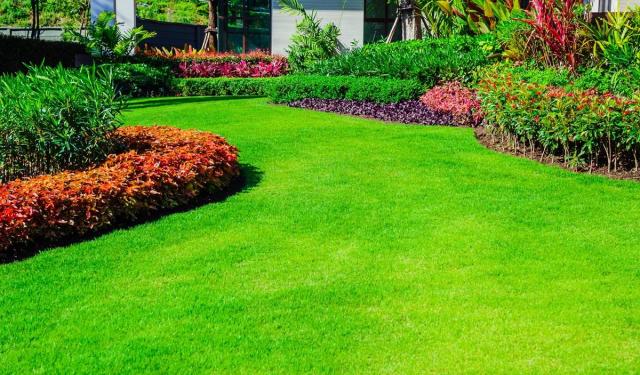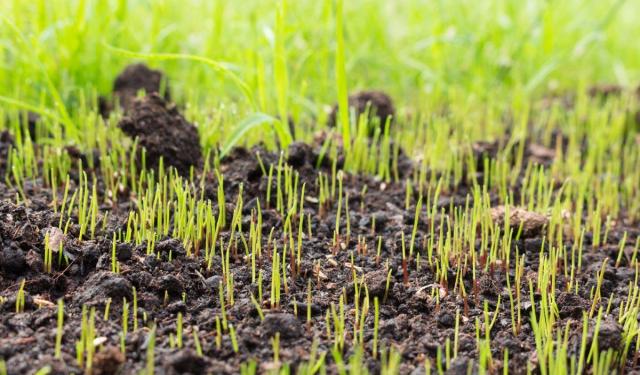Do you still have a lot of leaves sitting around the yard from last fall? Maybe you have a few bad salad greens that go out to the trash every week, or you are wondering what you can do with all your grass trimmings.
Why Are Folks Scared to Compost?
I think you already know what I am going to say – compost. I have talked to many, many people who seem to be scared by compost. A month after I moved to my new place I was talking to a neighbor a couple of properties away. I told her I was going to do a compost pile and she immediately told me it better not smell. That caught me off guard because I have never had a compost pile smell, even when I was helping with the composting operation at Brigham Young University.
Composting Expectations
Part of the reason that compost is such a big scare is that many articles and blogs are constantly telling us how to make the perfect compost. I cut out a lot of that hassle by realizing that I never wanted to spend the time and effort to get the perfect compost at home that everyone keeps telling us we should be working for. Instead, I went to the basics of what I want:
- Low smell. If the compost stinks I don’t want to do it in my back yard.
- Sufficient break down. I want things to break down before they hit my garden so that they are easy to spread and won’t sap a bunch of nitrogen out of my vegetable beds.
- I don’t want to spread weeds.
Controlling Smell
That is a short list of things to expect from a compost pile. And most of it is easy to achieve. Keeping the smell low is not hard. Just don’t add too many high nitrogen items and do not let the pile get so wet that turns into slime covered goo. The most common high nitrogen items are grass clippings and other green plant products. But even grass composted by itself rarely causes a smell problem unless it is sopping wet. Which brings us to the next fix for smelly compost: cut down on the water. If it looks like it may take a while to dry, give it a turn and mix in some new dry material and it will straighten out in no time!
Helping the Process Along
 Getting the plants to break down is not hard if you put them into the pile in smaller pieces. This is especially true for things that are tough like corn stalks and husks or woody twigs and branches. Bigger branches can be broken down so that they are more of an evenly dimensioned chunk. If it looks like that is too big then the branch is too big to be composting. The second key to getting plants to break down is to turn the pile regularly. This does not need to be an everyday task, or even an every week one, but it does need to be done and if you can do it twice a week it will help the process along. The third part of encouraging the plants to decompose is to keep the compost pile damp. Not wet, but damp.
Getting the plants to break down is not hard if you put them into the pile in smaller pieces. This is especially true for things that are tough like corn stalks and husks or woody twigs and branches. Bigger branches can be broken down so that they are more of an evenly dimensioned chunk. If it looks like that is too big then the branch is too big to be composting. The second key to getting plants to break down is to turn the pile regularly. This does not need to be an everyday task, or even an every week one, but it does need to be done and if you can do it twice a week it will help the process along. The third part of encouraging the plants to decompose is to keep the compost pile damp. Not wet, but damp.
Controlling the Spread of Weeds
Weeds will not spread if they or their seeds are not put in the pile. This can be a pain if you have lots of weeds and don’t want to send them to the city dump, but it is fairly foolproof. If you can’t stand to see all of that plant nutrition go to waste you can add the weeds that you know don’t have seeds on them yet and that you know will not root out from the bits you throw in the compost pile. If you want to compost every little bit of plant matter you can, you need to be able to control the heat and keep it at 50 degrees C for five days with at least four hours during the five day period at 55 degrees. If maintaining the temperature sounds hard for a homeowner, you are right. I don’t try to meet that standard myself and don’t encourage anyone to do it when they are starting out. There is plenty of time to work on the perfect compost pile after you get used to taking care of the basics.Just a few more notes: don’t add animal feces or any dead animals or animal parts to a compost pile. This can be done, but the risk of disease is too high and the details of doing it safely are more than you should be worrying about as a beginner. So remember, keep it simple and keep an eye on it and you won’t have any problems that you cannot fix easily.
Manana!





